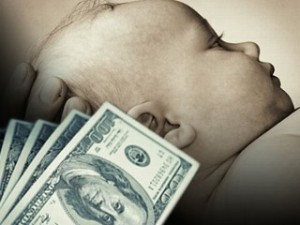The High Costs of High-Tech Babies
 Francoise Baylis, a professor in Bioethics and Philosophy in Canada, has an important piece out on the Quebec law that pays for up to three IVF cycles out of the state-funded public health system. I wrote about this bad decision when Quebec passed the law in 2010.
Francoise Baylis, a professor in Bioethics and Philosophy in Canada, has an important piece out on the Quebec law that pays for up to three IVF cycles out of the state-funded public health system. I wrote about this bad decision when Quebec passed the law in 2010.
Is it working? Sort of. IVF cycles in Quebec are on the rise. ‘Made in Quebec’ babies as she calls them are on the rise — approximately 1,500 IVF babies are born each year. And multiple births have decreased as doctors are performing the now preferred method of single embryo transfer, which was touted as a way to save money by driving down neonatal intensive care costs.
Dr. Baylis raises some important objections however:
- No data exists on how much this ‘free’ program has actually cost people in Quebec. Part of the move toward this legislation, as is often the case, was that it would save money.
- This policy emphasizes spending a great deal of money on high-tech babies via IVF rather than encouraging, by supporting with public funds, low-tech babies via adoption; both are legitimate ways to grow a family. A typical IVF cycle in Quebec runs $15,000. On the three IVF cycle plan, that’s $45,000. And we know that IVF cycles fail so often that many couples still don’t get a baby.
- Single-embryo transfer is just part of good medicine and shouldn’t need to be encouraged by financial incentives.
- $50 million need to be cut from the McGill University Health Centre by 2015, at a time when 21% of Quebecers and 46% of new immigrants don’t have a family physician and many pregnant women have no access to pre-natal care.
The bill was originally sold to help Quebec grow their population and provide affordable IVF. Like many government-run programs, it’s way over budget and forecasts are being revised upwards. Quebecers are told they will probably have to inject another $5 million to meet the demands. And those 1,500 babies born required over 7,300 IVF cycles!

